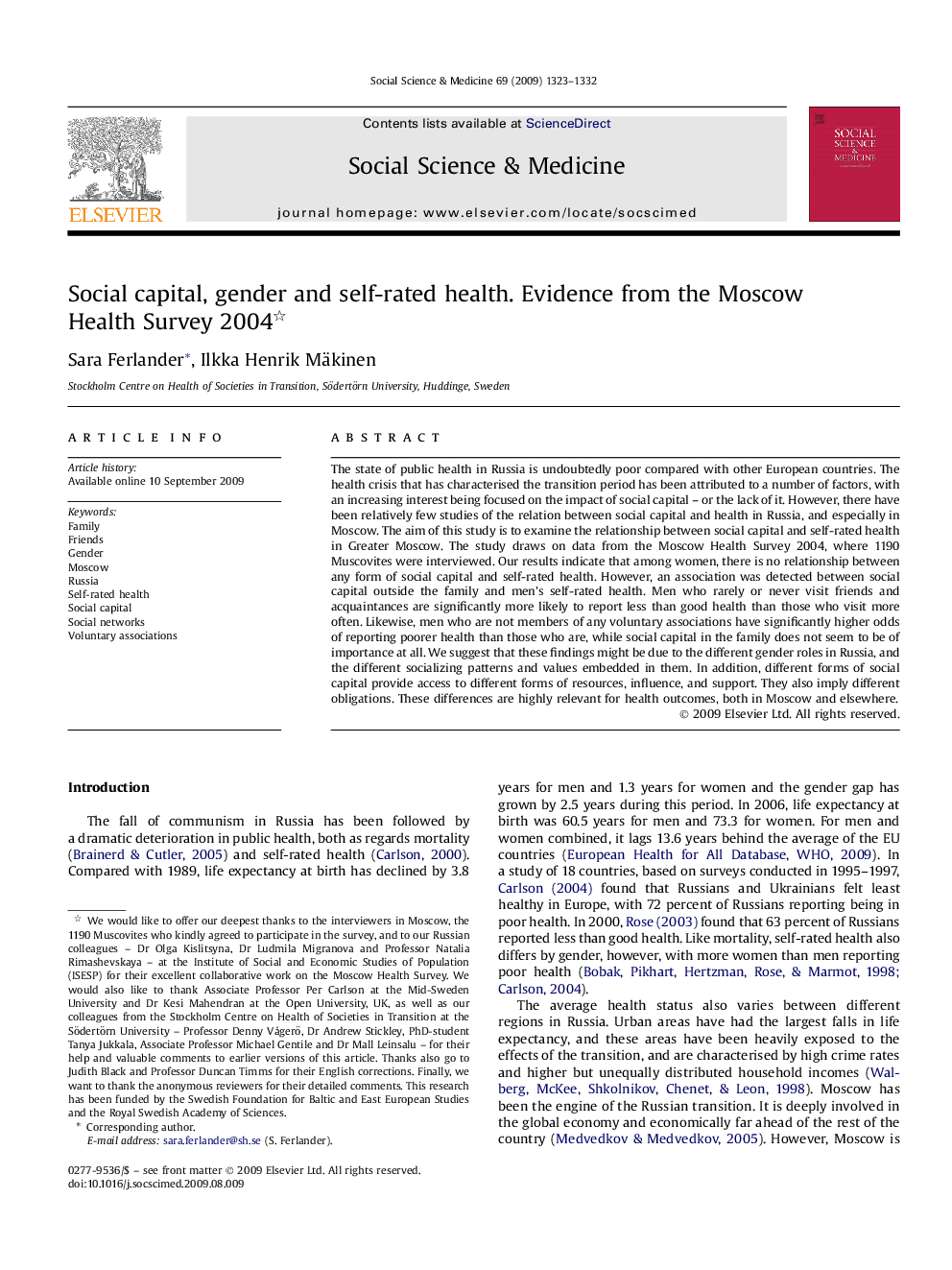| Article ID | Journal | Published Year | Pages | File Type |
|---|---|---|---|---|
| 953230 | Social Science & Medicine | 2009 | 10 Pages |
The state of public health in Russia is undoubtedly poor compared with other European countries. The health crisis that has characterised the transition period has been attributed to a number of factors, with an increasing interest being focused on the impact of social capital – or the lack of it. However, there have been relatively few studies of the relation between social capital and health in Russia, and especially in Moscow. The aim of this study is to examine the relationship between social capital and self-rated health in Greater Moscow. The study draws on data from the Moscow Health Survey 2004, where 1190 Muscovites were interviewed. Our results indicate that among women, there is no relationship between any form of social capital and self-rated health. However, an association was detected between social capital outside the family and men's self-rated health. Men who rarely or never visit friends and acquaintances are significantly more likely to report less than good health than those who visit more often. Likewise, men who are not members of any voluntary associations have significantly higher odds of reporting poorer health than those who are, while social capital in the family does not seem to be of importance at all. We suggest that these findings might be due to the different gender roles in Russia, and the different socializing patterns and values embedded in them. In addition, different forms of social capital provide access to different forms of resources, influence, and support. They also imply different obligations. These differences are highly relevant for health outcomes, both in Moscow and elsewhere.
